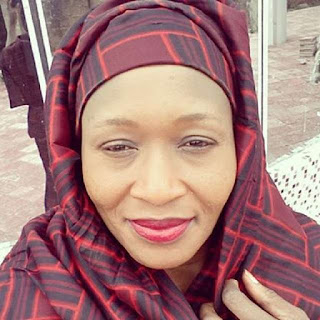What Body-Shaming Is Like in South Korea

Alina Shamsutdinova throwing her deuces up. (Photo: Facebook)
Body-shaming is an international epidemic affecting millions of women (and men) — especially those who are plus-size. While some countries celebrate a fuller figure, 23-year-old international student Alina Shamsutdinova experienced a serious case of culture shock when she spent time in South Korea.
“Among the things I heard was, ‘It’s OK to be ugly, but being fat is unforgivable,’” she told the Korea Herald. “Another comment was, ‘You’re really lucky that you have a pretty face. Otherwise you would never be able to have a boyfriend.’”
Critiques like these were beyond hurtful to Shamsutdinova, and she quickly began fasting to lose weight, only to gain it back soon after. Coming from Kazakhstan, Alina had always felt confident and never struggled with self-image; however, she quickly learned that her body type wasn’t as widely accepted in Korean culture as it was in Kazakhstan.
“I think I just tried to follow what others told me, or what the society wants,” Shamsutdinova said in reference to her realization that ideal body types differ among cultures. Many shops didn’t even carry Shamsutdinova’s size, furthering the proof of society’s efforts to discourage plus-size people in South Korea.
It turns out that Shamsutdinova isn’t the only one to notice South Korea’s stringent view’s on body type. Won Yoo-ri, an American woman interviewed for the feature story on the subject, said that friends, family, classmates, and even strangers had targeted her for her weight. One restaurant server even told her that she should be done with her meal because she had already “eaten enough.”
“In the U.S., I felt that my personality was all I needed and people responded to it,” Won said. “But to come to a country and constantly hear a conversation turn to ‘you should lose weight’ was heartbreaking.”
These incidents prove how the “ideal” body shape varies drastically in different countries, creating societies with vastly opposing views on culturally acceptable body types. With the body-positive movement sweeping through the United States, many plus-size women there are feeling more empowered and accepted, whereas countries such as South Korea and China (as seen in this infographic created by the Huffington Post) still value slender women over plus-size women.
Additionally, in a study conducted by Women’s Health, 58 percent of women in the U.K. responded no when asked “Do you think you’re beautiful?,” showing that these standards have more of an impact on one’s self-confidence than people may think. On the other hand, 92 percent of women from Indonesia responded to the same question with yes. So, why the drastic difference? Well, it ultimately stems from society and the media imposing specific standards on their community.
These varying degrees of self-perception found in the survey aren’t just a fluke — they’re a reflection of how cultures around the world treat certain body types. As it turns out, where you live has a major impact on whether or not your body is perceived as beautiful. So remember that while one society may look down on your physique, another may celebrate it. Instead, try to focus on being healthy rather than fitting into a mold that society tries to force you into.



Comments
Post a Comment